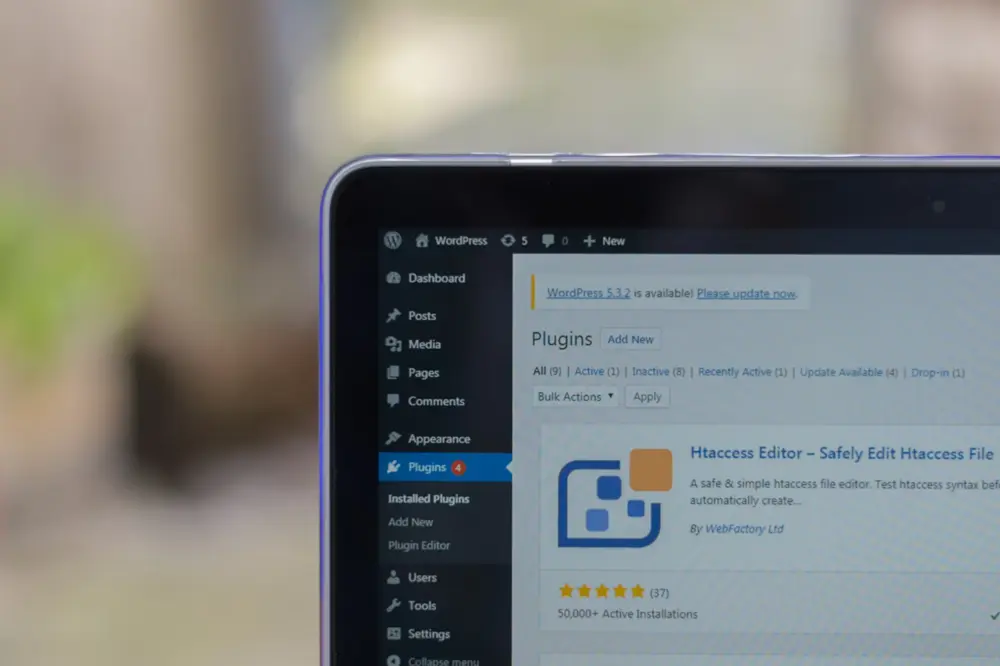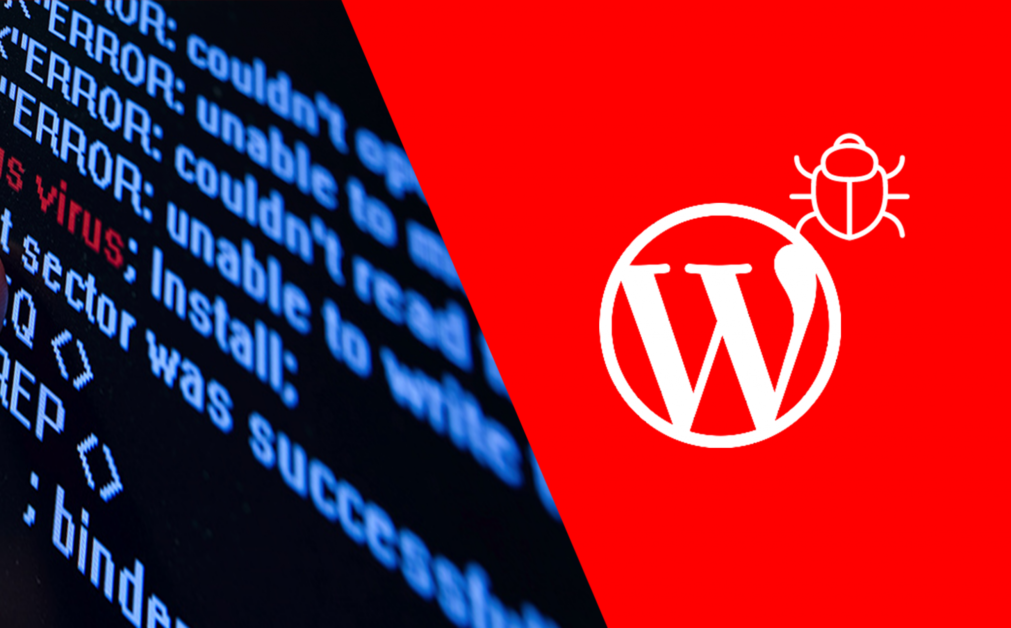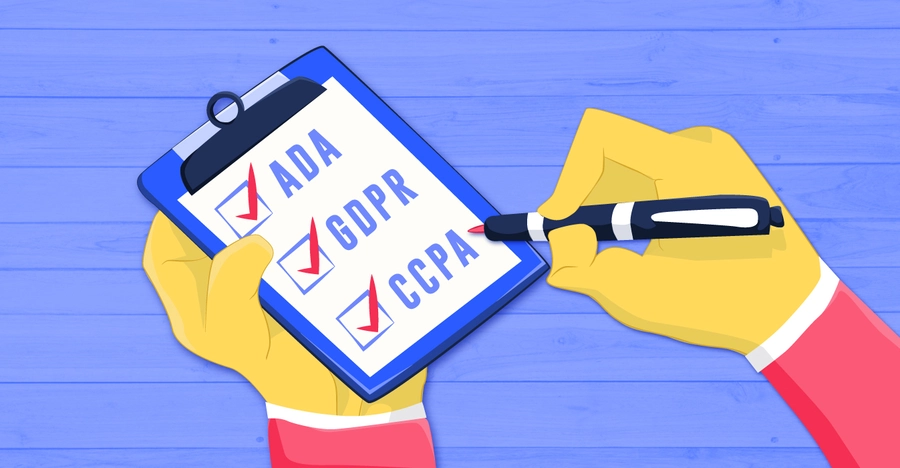Building a digital presence for your business, establishing a well-structured website, and maintaining a good online and social media presence can be quite a tedious task, and also one that is very slow and time-consuming.
WordPress is one of the best go-to platforms for your business to do that. Many startup founders, entrepreneurs, and new business owners usually go for WordPress when it comes to building a new website, as everybody grew up trusting it as kids, teenagers, and young adults.
It comes with flexibility, is easy to use, and is relatively simpler compared to other platforms. However, running a website on WordPress is more than just selecting themes or plugins.
You need to comply with rules and regulations to abide by the laws, stay within the legal use, and have proper licensing in terms of the software, the website, and the content. You also need to properly maintain your WordPress website from time to time.
In this blog, we will walk you through some of the essential concepts of compliance.
Why is Compliance on a Website important?
Usually, we all do this where we skip reading and just tick “agree” on terms and conditions. Just like that, when creating a site, we do the same on WordPress.
But ignoring those problems when building a website for your business can be troublesome in the future.
If you use unlicensed software or copyrighted content without the express permission of the owner/creator, you can get into legal trouble. These legal troubles can include fines or even shutting down your website.
What does compliance ensure?
- Protection – When you are adhering to licenses and copyright laws, it protects you from potential lawsuits trying to waste your company’s time. Moreover, you can go to an LLC formation service provider like Legal Zoom LLC which helps you in preparing legal documents and also register an LLC to safeguard your assets.
- Trust – Customers love those businesses that follow proper rules and regulations and they trust their products and services more when they see a guarantee that the business is following every rule and doing work ethically, to the dot.
- Stability – When you are following the rules, you can operate smoothly as well as scale your business and your website.
Introducing WordPress Licenses

Let’s talk a little bit about WordPress licenses here. The most common ones you will encounter are:
1. General Public License
Most plugins and themes of WordPress are a part of this type of license. It allows you to modify, edit, custom made, share, and publish your code freely.
2. Commercial Licenses
This one comes with premium plugins and themes. These are paid licenses that need to be renewed for you to continue receiving updates and support.
When you want to run a proper business, you need to understand these rules and follow them carefully.
What are Some of the Common Compliance Mistakes?
- Using pirated software or cheap cracked versions
- Forgetting to renew the licenses
- Using content that is unlicensed or owned by someone else
Downloading premium plugins may seem like an easy option because it’s a shortcut that gets you what you want but it is illegal and temporary. Also, many pirated and cheap cracked versions contain malware that can compromise your data.

If you have forgotten to renew your license, it could lead you to lose control and functionality of your own website.
And lastly, you absolutely can’t be using random images you found on the search engine on your website without permission.
How Can You Ensure that Your WordPress Website is Compliant?
- You must always buy plugins from trusted sources. WordPress does have a Plugin Repository for you to buy from.
- Always avoid shady websites or free and cracked premium versions.
- Organize your licenses and make sure you are up to date on the renewal times and keep track to make sure you renew at the right time.
- Keep an eye on the updates as licenses can change and you have to ensure that you are always in compliance with security and safety regulations.
- Use images and media from websites with clear licensing terms for example Shutterstock.
Usually, the best suggestion for you is to create your own content such as blogs, videos, reels, shorts, images, and posts. This will not only ensure that you are compliant with security rules, it will give you a chance to boost your SEO.
What is GDPR and CCPA?

Two major laws apply to you when your business collects information such as contact information, transactional data, financial data, and personal details.
GDPR is the General Data Protection Regulation. This one is for you when your customers are in the European Union. This law requires you to be transparent about how you collect, store, and use the customers’ data.
CCPA is the California Consumer Privacy Act. This one is for you when your customers are in the United States of America and also specifically if you serve California residents.
One more thing you need to make sure of is that your website should include a clear and concise privacy policy and display a cookie consent banner.
Here Is How You Can Ensure Complete Compliance by Your Business
- Conduct audits regularly and every few months check all the plugins, content, and themes to ensure that everything is properly licensed and updated.
- If multiple people are working on your website, train them all on the rules. This training is especially important around content and privacy policies.
- Always consult legal experts when it comes to drafting important documents for your website.
Conclusion
Compliance as many of you might have thought is not just about avoiding how to pay fines. It has more to do with building trust with your customers and making sure they feel safe with your brand.
With proper planning and a little bit of attention to detail, you can ensure that your website is secure, legal, and ready to take the business ahead.
Read more: Canva vs Photoshop: Which is Better?
Contact US | ThimPress:
Website: https://thimpress.com/
Fanpage: https://www.facebook.com/ThimPress
YouTube: https://www.youtube.com/c/ThimPressDesign
Twitter (X): https://x.com/thimpress_com



